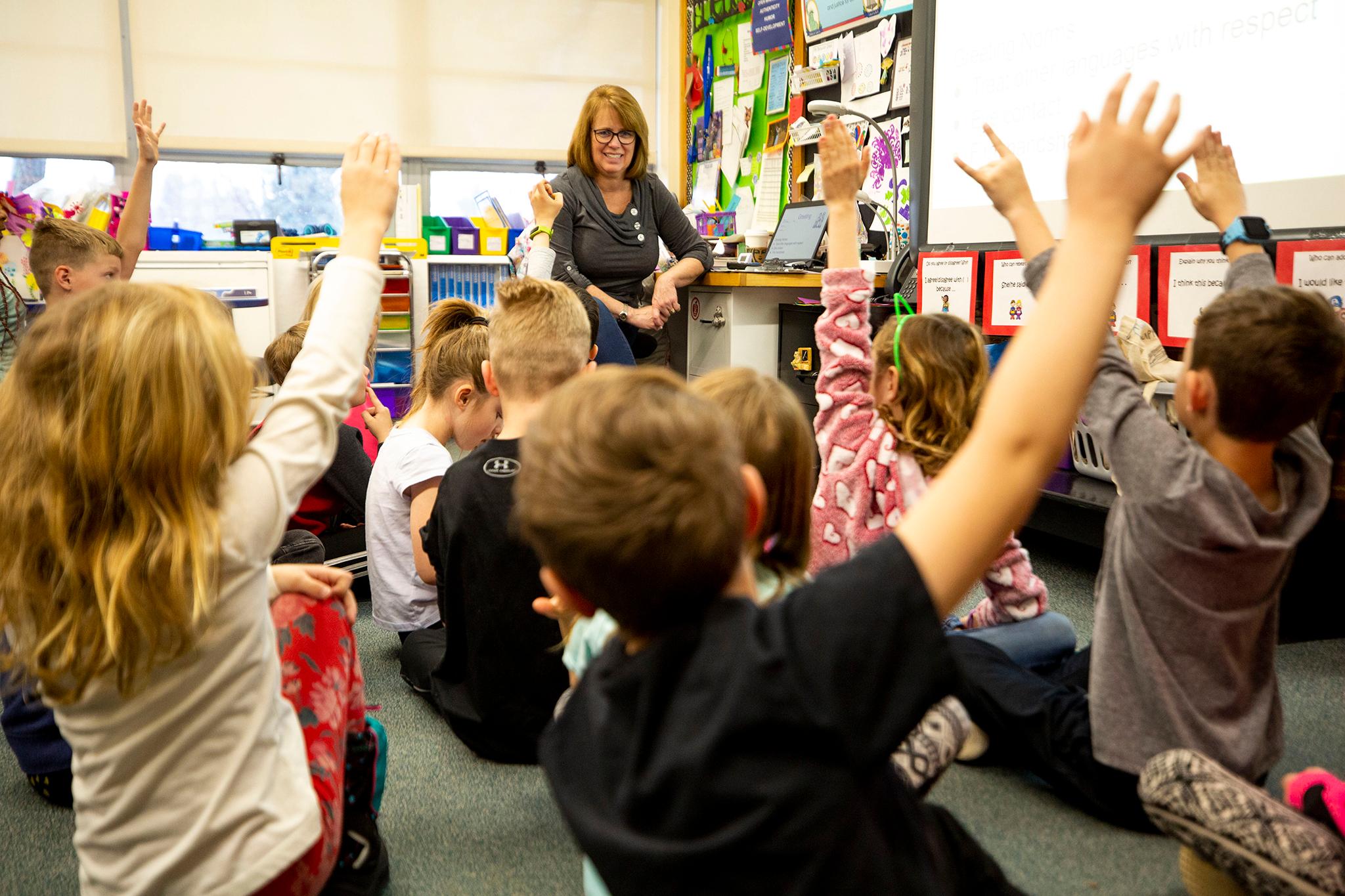When we asked more than 100 Denverites what they wanted to see in upcoming elections, the number three priority -- behind the city's affordability and crime -- was education. They were specifically concerned about funding, catching students up after the COVID-19 gap, stopping school closures and improving quality.
Voters looking to improve education in the state will have a few key decisions to make in November. Ballots are in the mail on Oct. 17, and voting ends on Nov. 8. Here's how education shows up in the coming election.
City and County Ballot Questions
Some of these questions, called referrals, were brought to the voters by City Council. Others, called initiated ordinances, were brought to voters by citizens who collected signatures from registered voters.
Ballot issues, like one from the Valley Sanitation District, are proposed by districts. Only some voters will see these.
Only one of these local questions relates to education -- and even it doesn't address issues in the schools.
Referred Question 2I: This will decide whether to generate more funding for the Denver Public Library. The measure would raise taxes by no more than $36 million, or $4.19 per month per the typical home. Funding would maintain existing Denver Public Library services and meet growing demand by allowing the library to raise salaries and wages for underpaid librarians and staff, boost technology for those who don't have internet access, enhance programs and services, expand resources for job seekers, increase the collection to reduce wait times, and bring the libraries back to normal hours and schedules after pandemic cutbacks, allowing them to be open again on nights and weekends.
For more information on the November ballot, check out the Denverite and Colorado Public Radio ballot guides.
Amendments to the state constitution
While the legislature or citizens can put these items on the ballot this year, only the legislature did. These items would change Colorado's constitution. None of these involve education. To pass, these amendments need 55 percent of voters to approve them.
Propositions
The legislature or citizens can add these to the ballot, but they don't change the Colorado constitution. Instead, they change state statutes or taxes. They need a majority of voters' support to pass.
This year there is only one education-related proposition, which would provide universal free lunch or not.
Proposition FF: Healthy School Meals for All: This would increase taxes to build a program to make sure all students have free breakfasts and lunches at school.
U.S. Senators and Representatives for Congress
U.S. senators and representatives propose and vote on federal laws and funding. These bodies can set and evaluate federal education standards, address equal opportunity issues and offer funding for schools and research.
Colorado is represented by two senators and multiple congress members. There are currently seven congressional districts in Colorado, but next session, there will be eight. Representatives give smaller regions a voice when it comes to federal policy.
Here's more about candidates Sen. Michael Bennet (Dem) and Joe O'Dea (GOP).
Governor
Colorado's governor has executive powers. One of the big ones: the right to veto new legislation from the Colorado Senate and House. It's not ultimate power, as vetoes can be overturned with 66 percent-plus votes from both bodies.
The governor oversees state agencies, boards and commissions. Those relating to education include the Colorado State Board of Education, the Colorado Department of Education and the Colorado Department of Early Childhood.
Here's more about incumbent Jared Polis (Dem) and challenger Heidi Ganahl (GOP).
Attorney General
The attorney general is the "people's attorney." This position represents the legislature, state agencies and citizens in court. While most of the office's work is not related to education, it does oversee school violence prevention and other educational safety programs.
Here's more about who's running.
State Treasurer
The State Treasurer is the person in charge of tax dollars, from how they're collected to how they're spent. When it comes to ensuring schools get the money the state collects, this position matters.
Here's more about who's running.
State senators and representatives
State senators and representatives decide Colorado's policies, laws and where money goes. This body will have some say in educational policy making. Recent examples include an expansion of support for childcare education, free kindergarten and pre-K. While school boards decide how school systems run, the senators and representatives can create statewide policies.
State Board of Education
The State Board of Education offers statewide educational leadership, employees Department of Education staff and oversees the department's budget.
The board also makes policies that govern the Department of Education and public education, from pre-kingergarten through adult education, along with public libraries. This is the body that accredits public school districts and offers statewide library services through the State Library.
All Colorado voters will pick an at-large board member. Those Denver voters living in Congressional District 6 will also pick their district's board member.
Here's more about who's running.
Regent of the University of Colorado -- Congressional District 1
Voters in Congressional District 1 will choose someone to serve as a regent of the University of Colorado. That's the nine-member board, with staggered six-year terms, that supervises the university system and controls and directs its funds.
?️ For more information on the November ballot, check out the complete Denverite and Colorado Public Radio ballot guides.












